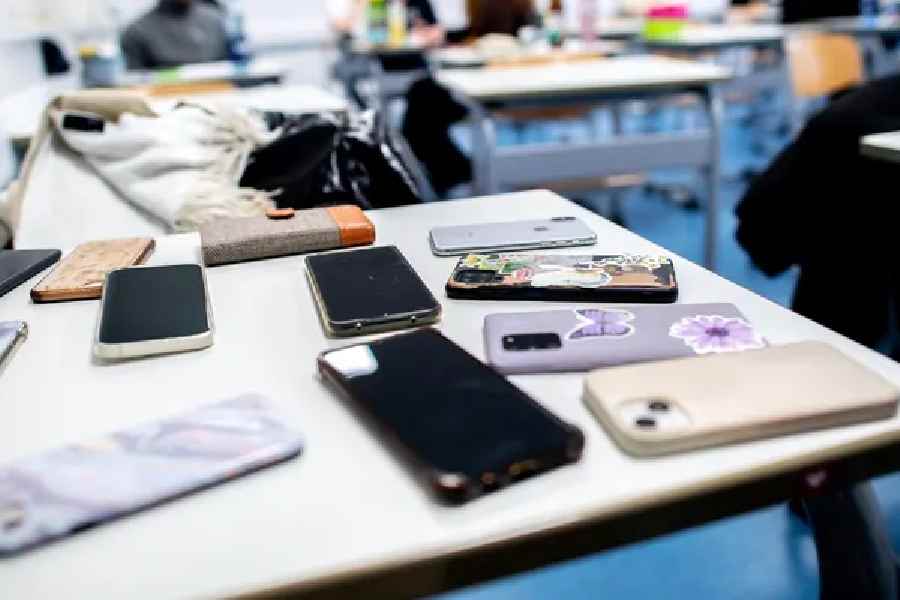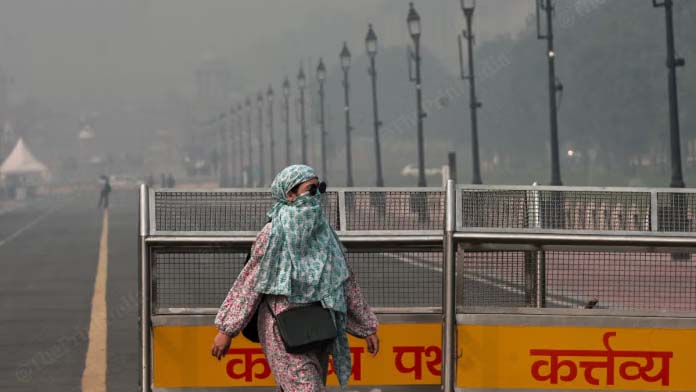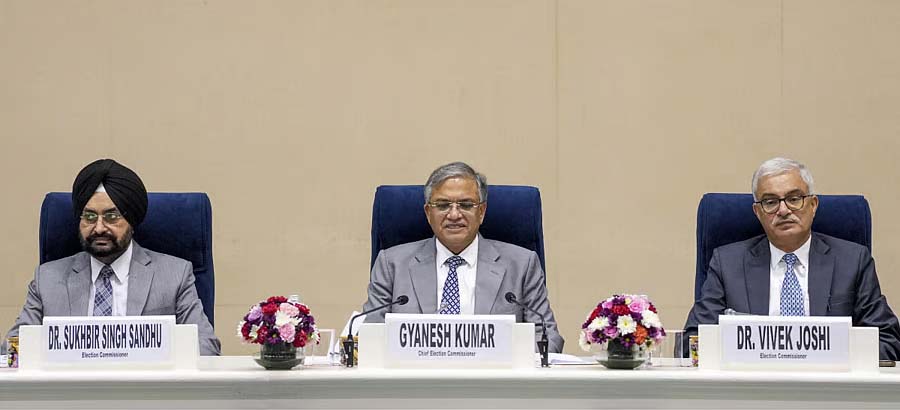BIG NEWS
- Tripura Assembly Speaker Biswa Bandhu Sen dies at 72
- Unnao rape case: Protest outside Delhi HC against suspension of Kuldeep Sengar's jail term
- Delhi AQI still above 300 amid 'very poor' air quality in national capital
- Helicopter on rescue mission crashes on Tanzania's Mount Kilimanjaro, killing all 5 on board
- Navi Mumbai International Airport starts commercial flight operations
- PM Modi attends Christmas service at Delhi church, greets citizens
- BNP acting chairman Tarique Rahman ends 17-year exile, lands in Dhaka
- Noida Airport to be inaugurated in January 2026, says Yogi Adityanath
- Suryavanshi smashes 84-ball 190 in Vijay Hazare match
- India wins second WT20I, defeats Sri Lanka by 7 wickets
1 in 4 countries has banned use of smartphones in schools due to negative impacts: UN report


Public Lokpal
August 04, 2024


1 in 4 countries has banned use of smartphones in schools due to negative impacts: UN report
New Delhi: Large-scale international assessment data suggests a negative link between excessive use of technology and student performance, yet less than one in four countries have banned smartphone use in schools, according to the Global Education Monitoring (GEM) report.
The report on "Technology in education" published by the United Nations Educational, Scientific and Cultural Organization (UNESCO) has flagged that assessment data has found that mere proximity to a mobile device distracts students and has a negative impact on learning.
An expert from the UN's Education team told PTI that too much attention on technology in education usually comes at a high cost, and technology, including smartphones, should only be used in class when it supports learning outcomes.
"The adoption of digital technology has resulted in many changes in education and learning. The set of basic skills that young people are expected to learn in school, at least in richer countries, has expanded to include a broad range of new ones to navigate the digital world. In many classrooms, paper has been replaced by screens, and pens by keyboards. COVID-19 can be seen as a natural experiment where learning switched to online for entire education systems virtually overnight," the report said.
"Large-scale international assessment data, such as that provided by the Programme for International Student Assessment (PISA), suggest a negative link between excessive ICT (Information Communication Technology) use and student performance. Mere proximity to a mobile device was found to distract students and to have a negative impact on learning in 14 countries, yet less than one in four have banned smartphone use in schools," it said.
UNESCO has flagged that use of devices by students beyond a moderate threshold may have a negative impact on academic performance as the use of smartphones and computers disrupts classroom and home learning activity.
The report also mentioned that a study found that it can take students up to 20 minutes to refocus on what they were learning after engaging in a non-academic activity.
By categorising use of technology at home and in school as low, medium or high, more intensive use beyond a threshold was most often found to be correlated with diminishing academic performance while moderate usage was most often associated with positive academic outcomes.
"Studies on teacher perceptions of the use of tablets and phones highlight difficulties in classroom management, when students visit websites other than those indicated by teachers or due to the increased level of noise in the classroom. The use of social media in the classroom is also disruptive, increasing academic distraction with negative effects on learning outcomes," the report said.
"Data analysis also showed a negative correlation between the use of social media in school and digital reading performance. Resources spent on technology, rather than on classrooms, teachers and textbooks for all children in low and lower-middle-income countries lacking access to these resources, are likely to lead to the world being further away from achieving the global education goal," it said.
The report has called for clear objectives and principles needed to ensure that technology use is of benefit and avoids harm.
Education systems need to be better prepared to teach about and through digital technology, a tool that must serve the best interests of all learners, teachers and administrators, according to the report.
"Technology is evolving too fast to permit evaluation that could inform decisions on legislation, policy and regulation. Research on technology in education is as complex as technology itself. Findings that apply in some contexts are not always replicable elsewhere," it said.
PTI


















